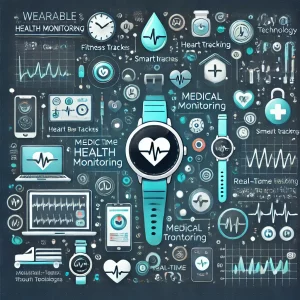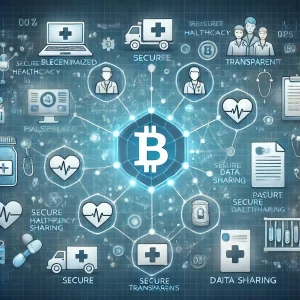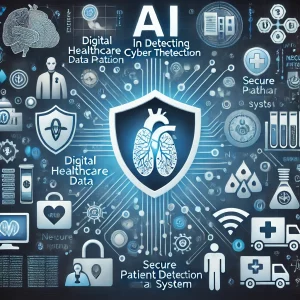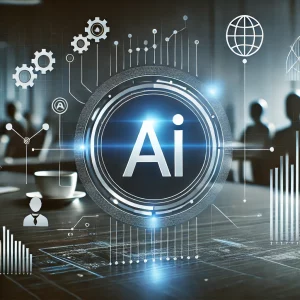How AI is Revolutionizing Healthcare
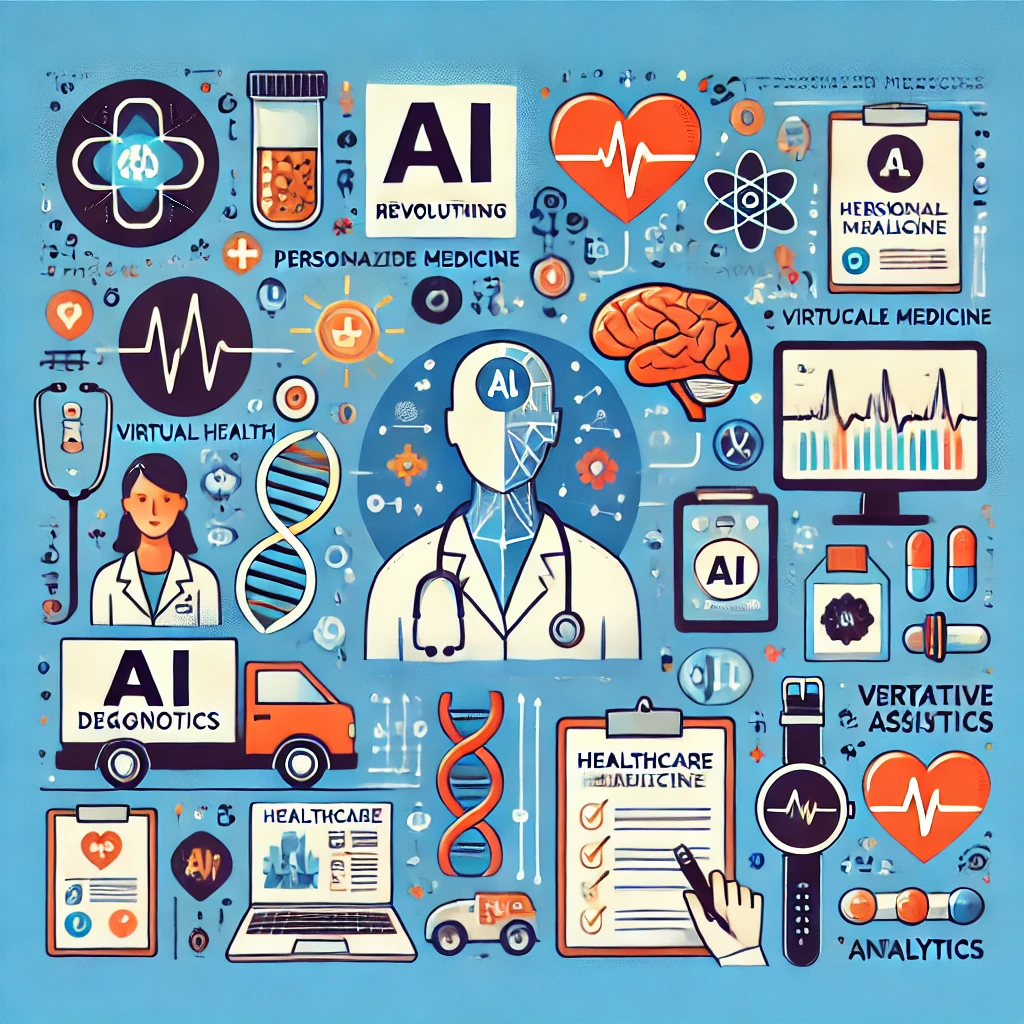
Artificial Intelligence (AI) is reshaping the landscape of healthcare in remarkable ways, offering new possibilities for diagnosis, treatment, and the overall management of healthcare systems. From predictive analytics to personalized medicine, AI is revolutionizing how we approach patient care and medical research. As AI technologies continue to evolve, their application in healthcare is expected to increase, bringing about more efficient, accurate, and accessible healthcare services.
In this article, we will explore the various ways AI is revolutionizing healthcare, its key applications, benefits, and the challenges that come with integrating AI into medical practices.
The Role of AI in Healthcare
AI refers to the development of computer systems that can perform tasks that typically require human intelligence. In healthcare, AI systems analyze large datasets, identify patterns, and offer insights that help medical professionals make informed decisions. AI technologies, including machine learning (ML), natural language processing (NLP), and computer vision, enable healthcare providers to improve diagnostics, streamline workflows, and enhance patient outcomes.
The integration of AI into healthcare is driving the shift toward precision medicine, a data-driven approach to healthcare that focuses on individualized treatment plans based on a patient’s genetics, lifestyle, and environment.
Key Applications of AI in Healthcare
1. Medical Imaging and Diagnostics
AI has made significant strides in the field of medical imaging, where it is used to detect abnormalities in radiology scans such as X-rays, MRIs, and CT scans. AI algorithms can quickly and accurately identify patterns in medical images, enabling early detection of diseases like cancer, heart conditions, and neurological disorders.
For example, AI-powered tools can identify tumors in mammograms with a high degree of accuracy, often detecting signs of cancer that might be missed by human radiologists. By analyzing thousands of images, AI can spot subtle differences that indicate disease, improving both the speed and accuracy of diagnoses.
2. Predictive Analytics and Early Intervention
Predictive analytics is another area where AI is making a significant impact. AI systems analyze vast amounts of patient data to predict future health outcomes, enabling healthcare providers to identify at-risk patients and intervene early.
For instance, AI models can analyze electronic health records (EHRs) to predict the likelihood of a patient developing chronic conditions such as diabetes, cardiovascular disease, or kidney failure. By identifying patterns in historical data, AI can help clinicians make proactive decisions to prevent the onset of disease or manage it more effectively.
Predictive analytics also plays a crucial role in hospital settings, where AI can be used to predict patient outcomes, such as the likelihood of readmission or complications after surgery. This allows hospitals to allocate resources more efficiently and improve patient care.
3. Personalized Medicine
One of the most exciting applications of AI in healthcare is in the field of personalized medicine. AI enables the development of tailored treatment plans based on individual patient data, including genetics, lifestyle, and medical history. This approach is particularly valuable in areas like cancer treatment, where each patient’s response to therapy may vary significantly.
AI can analyze genomic data to identify mutations and recommend targeted therapies that are more likely to be effective for a particular patient. For example, AI can help oncologists identify the specific genetic mutations driving a patient’s cancer and suggest treatments that target those mutations. This not only increases the likelihood of success but also reduces the risk of adverse side effects.
In addition to genetics, AI can integrate data from wearable devices, smartphones, and other health-monitoring tools to provide real-time insights into a patient’s health, allowing for more personalized and dynamic treatment plans.
4. Virtual Health Assistants and Chatbots
AI-powered virtual health assistants and chatbots are transforming the way patients interact with healthcare providers. These tools can assist with tasks such as scheduling appointments, providing medication reminders, and answering common health-related questions.
Virtual health assistants can help patients manage chronic conditions by providing real-time support and monitoring. For example, AI-powered chatbots can guide patients through their treatment plans, offer advice on managing symptoms, and alert healthcare providers if a patient’s condition worsens.
In primary care, chatbots can triage patients by collecting symptoms and medical history before they see a doctor, helping reduce the workload for healthcare providers and improving patient satisfaction.
5. Drug Discovery and Development
AI is also revolutionizing the pharmaceutical industry by accelerating the drug discovery and development process. Traditional drug discovery methods are time-consuming and expensive, often taking years to bring a new drug to market. AI can analyze vast datasets, including scientific literature, clinical trial results, and genetic information, to identify potential drug candidates more quickly.
For example, AI algorithms can simulate how different compounds interact with disease-causing proteins, helping researchers identify promising drug candidates faster than conventional methods. AI can also be used to design new drugs from scratch by predicting the molecular structures that are most likely to be effective in treating specific diseases.
In addition, AI can analyze the results of clinical trials to predict the success of new drugs, allowing pharmaceutical companies to make data-driven decisions about which compounds to pursue.
6. Operational Efficiency and Workflow Automation
AI is helping hospitals and healthcare facilities improve operational efficiency by automating routine administrative tasks, such as billing, appointment scheduling, and patient record management. This allows healthcare professionals to focus on patient care rather than paperwork.
AI-driven solutions can optimize hospital workflows by predicting patient demand, managing resources, and improving the allocation of staff and equipment. For example, AI can predict peak hours in emergency departments and help hospitals prepare for increased patient flow, reducing wait times and improving overall patient care.
Benefits of AI in Healthcare
The adoption of AI in healthcare brings numerous benefits to both healthcare providers and patients, including:
1. Improved Accuracy and Speed
AI’s ability to analyze large datasets quickly and accurately allows for more precise diagnoses and treatment plans. In areas like medical imaging, AI can detect diseases earlier and with greater accuracy than human experts, leading to better patient outcomes.
2. Enhanced Patient Care
AI-powered tools can improve patient care by providing personalized treatment plans and real-time health monitoring. Patients with chronic conditions can receive tailored advice and support, improving their quality of life and reducing the need for frequent hospital visits.
3. Cost Reduction
By automating routine tasks and streamlining workflows, AI can help healthcare providers reduce costs and improve operational efficiency. AI-driven drug discovery can also lower the cost of developing new medications, making treatments more affordable for patients.
4. Increased Accessibility
AI-powered virtual assistants and telemedicine platforms make healthcare more accessible, especially for patients in remote or underserved areas. AI can provide medical advice, monitor health conditions, and connect patients with healthcare professionals, reducing the need for in-person visits.
Challenges of Implementing AI in Healthcare
While AI offers significant potential to revolutionize healthcare, there are several challenges to its widespread adoption:
1. Data Privacy and Security
AI systems rely on access to large amounts of patient data, raising concerns about privacy and data security. Ensuring that AI systems comply with data protection regulations, such as the Health Insurance Portability and Accountability Act (HIPAA) and the General Data Protection Regulation (GDPR), is critical to maintaining patient trust.
2. Integration with Existing Systems
Integrating AI technologies into existing healthcare infrastructures can be complex. Many healthcare providers still rely on legacy systems, which may not be compatible with modern AI solutions. Overcoming these integration challenges requires significant investment in technology and training.
3. Regulatory Compliance
AI-driven healthcare solutions must meet strict regulatory standards to ensure safety and efficacy. Gaining regulatory approval for AI-based medical devices and treatments can be time-consuming and costly, which may slow down the adoption of new technologies.
4. Bias in AI Algorithms
AI systems are only as good as the data they are trained on. If AI algorithms are trained on biased or incomplete data, they may produce inaccurate or unfair results. Ensuring that AI systems are trained on diverse and representative datasets is essential to minimizing bias and ensuring equitable healthcare outcomes.
The Future of AI in Healthcare
The future of AI in healthcare is incredibly promising, with ongoing advancements expected to transform the way medical care is delivered. As AI technologies continue to improve, we can expect:
- More Accurate Diagnostics: AI will continue to enhance diagnostic capabilities, especially in areas like genomics, medical imaging, and personalized medicine.
- Expanded Use of AI-Powered Virtual Care: Virtual assistants and telemedicine platforms will become more advanced, offering real-time, AI-driven healthcare support to patients around the world.
- Greater Integration with Wearables: AI will increasingly integrate with wearable health devices, providing continuous health monitoring and early detection of medical issues.
- Faster Drug Discovery: AI will accelerate the drug discovery process, leading to more effective treatments for diseases like cancer, Alzheimer’s, and cardiovascular conditions.
Conclusion
AI is revolutionizing healthcare by improving diagnostics, personalizing treatment plans, and enhancing operational efficiency. Its ability to analyze large datasets, predict patient outcomes, and automate routine tasks makes it a powerful tool for healthcare providers. While challenges remain, including concerns around data privacy, integration, and regulatory compliance, the future of AI in healthcare is bright. As AI technologies continue to evolve, they will play an increasingly important role in improving patient care, reducing costs, and making healthcare more accessible to people around the world.
